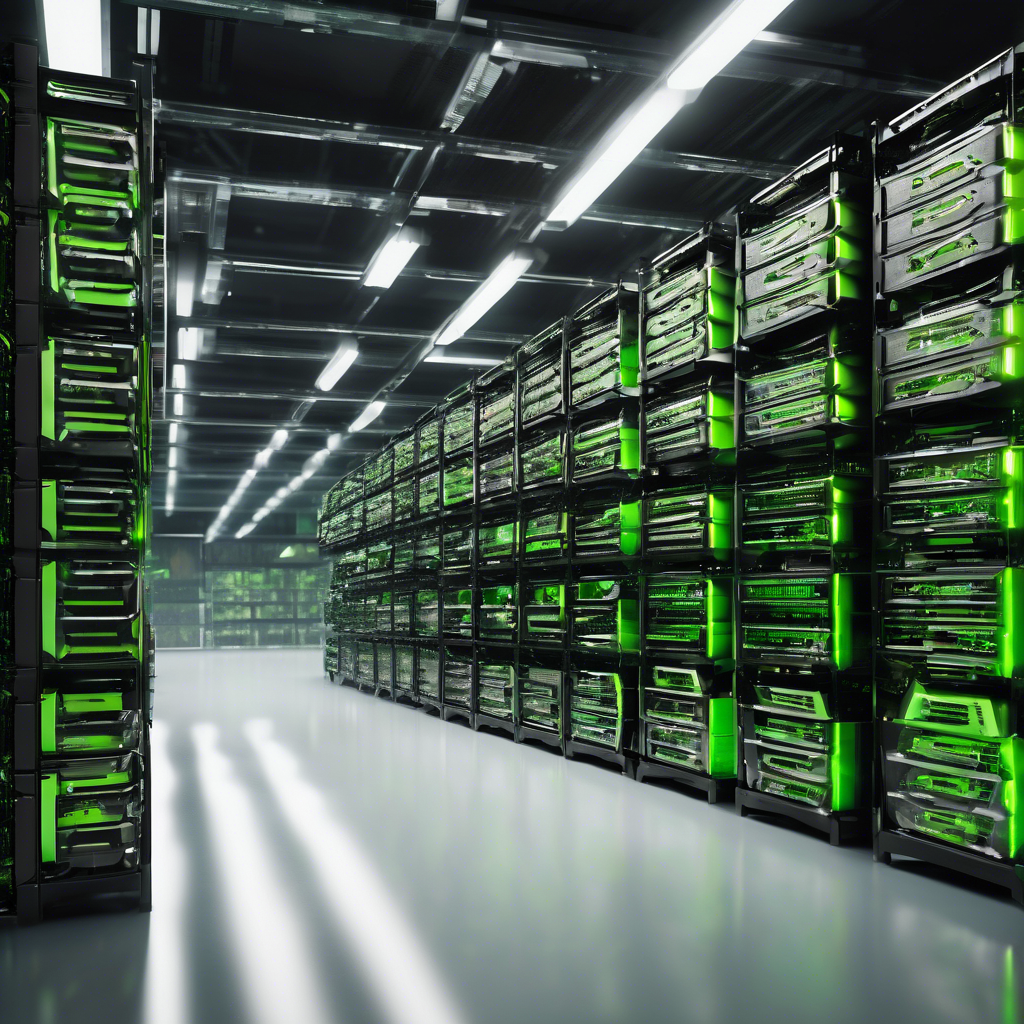US Considers Major Nvidia AI Chip Export Deal to UAE Amid Security Concerns

The Trump administration is considering a major deal allowing the United Arab Emirates (UAE) to import over one million advanced AI chips made by Nvidia, permitting about 500, 000 high-end chips annually through 2027. This aims to boost AI development in the region, supporting both state-backed and private initiatives. Approximately 20% of these chips (about 200, 000 per year) would go to Abu Dhabi’s key AI firm, Group 42 (G42), a state-supported company leading AI projects in the UAE. The remaining 80% (around 400, 000 chips annually) would be supplied to U. S. companies establishing data centers in the Middle East, strengthening technology infrastructure and partnerships between American firms and the UAE market. This deal reflects a broader U. S. effort to secure influence in critical tech fields like AI and data processing by supporting U. S. companies abroad and transferring advanced AI components to allies, fostering innovation while retaining strategic advantages. However, some U. S. Congress members express concerns that China might indirectly access sophisticated American technology through intermediaries like the UAE. Given the UAE’s complex ties with China and other nations, there is apprehension that cutting-edge AI tech could unintentionally or deliberately be transferred to geopolitical rivals, threatening U. S. security and competitiveness. These worries arise amid ongoing U. S. efforts to limit China’s access to vital technologies, including semiconductors and AI, key to national security and economic strength. The risk that China could bypass restrictions via third countries is a significant strategic issue.
In response, U. S. officials plan thorough assessments and strict regulations to ensure the Nvidia AI chips are used only as intended. Measures could involve tighter export controls, end-use monitoring, and enhanced cooperation with international partners to enforce technology sharing rules. This potential deal highlights the delicate balance between advancing technological innovation and protecting national security. It supports American firms’ global expansion and strengthens ties with a Gulf ally but risks unintentional diffusion of advanced AI to competitors. The scenario exemplifies the complexities of modern tech diplomacy, where economic, security, and diplomatic factors are deeply intertwined. As AI’s role grows in economic and military spheres, managing technology flows remains a critical policy challenge. Looking ahead, debates are expected in Congress, industry, and the executive branch about balancing these priorities. The final decision will likely involve agencies such as the Departments of Commerce, Defense, and intelligence to ensure U. S. tech leadership and security are upheld. Overall, while exporting over a million Nvidia AI chips to the UAE marks a significant step for international collaboration and expanding U. S. AI reach, it underscores the ongoing challenges of managing advanced tech exports amid a complex geopolitical landscape. The decision’s outcome will carry lasting implications for U. S. tech policy and strategic international partnerships.
Brief news summary
The Trump administration is considering a deal allowing the UAE to import over one million advanced Nvidia AI chips through 2027, with about 20% allocated to Abu Dhabi’s state-backed AI firm, Group 42, and the rest supporting U.S. companies’ data centers in the Middle East. This initiative aims to boost AI development and strengthen U.S.-UAE technological collaboration. However, some U.S. lawmakers worry that the deal might enable China to indirectly access sensitive American AI technology via the UAE, raising security concerns and threatening U.S. competitiveness. To address these risks, the administration plans strict measures such as export controls and end-use monitoring to prevent misuse and protect national interests. This proposal underscores the complex balance between fostering innovation and managing geopolitical challenges in AI exports. The final decision, involving multiple government agencies, will greatly influence U.S. technology policy and international relations moving forward.
AI-powered Lead Generation in Social Media
and Search Engines
Let AI take control and automatically generate leads for you!

I'm your Content Manager, ready to handle your first test assignment
Learn how AI can help your business.
Let’s talk!

Hoskinson Says Cardano Could Be First Blockchain …
Charles Hoskinson, the founder of Cardano, is considering the development of a privacy-enabled stablecoin on the Cardano blockchain.

Saudi Arabia's Humain partners with Nvidia on AI …
On May 13, 2025, Nvidia, a global leader in graphics processing technology, and Humain, a Saudi startup owned by the kingdom’s Public Investment Fund (PIF), announced a strategic partnership to advance Saudi Arabia’s ambitions in artificial intelligence (AI).

NYC Sets Stage for Crypto Future as Mayor Adams F…
With New York’s inaugural crypto summit just days away, Mayor Eric Adams is signaling the city’s intent to establish itself as a global hub for blockchain innovation.

Silicon Valley Braces for Chaos
Despite significant economic turmoil caused by President Trump's aggressive tariff policies—imposing surcharges up to 245% on Chinese goods—and ongoing political instability, Silicon Valley’s AI-driven technology sector remains remarkably resilient and optimistic.

Solana co-founder proposes ‘meta blockchain’ to u…
Solana co-founder Anatoly Yakovenko has proposed the creation of a “meta blockchain” aimed at reducing data availability (DA) costs while enhancing interoperability among multiple blockchain networks.

AI Ethics: Balancing Innovation with Responsibili…
As artificial intelligence (AI) increasingly infiltrates many aspects of daily life and various industries, discussions about its ethical implications have become more prominent.

Brave adds Cardano blockchain support to browser …
Update (May 13, 1:00 pm UTC): This article now includes third-party commentary from Robert Roose.

 Auto-Filling SEO Website as a Gift
Auto-Filling SEO Website as a Gift








 Auto-Filling SEO Website as a Gift
Auto-Filling SEO Website as a Gift

